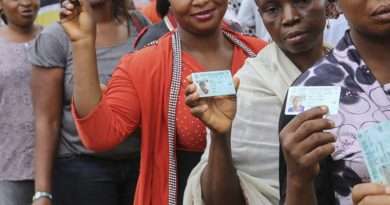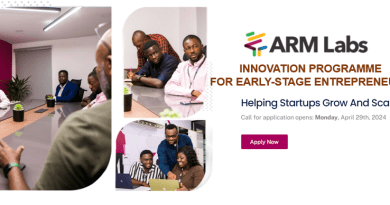PRO-WASH & SCALE Small Grants Program ($100,000 grant)
The PRO-WASH & SCALE Award is delighted to announce this call for applications (CFA). The purpose of this CFA is to invite applications and identify partner(s) who will collaborate with us to develop and implement initiatives that prioritize community engagement within the focus sectors of PRO-WASH & SCALE, in order to support food and nutrition security objectives. These sectors include agriculture, natural resource management (NRM), livelihoods, markets, water resource management (WRM), and water, sanitation, and hygiene (WASH). The selected partner(s) will conduct activities that explore various approaches or tools, with a particular emphasis on centering community voices and decision-making processes when adopting new practices or behaviors.
PRO-WASH & SCALE Award Objective
The examples provided in this list are not exhaustive, but rather serve as illustrations to assist applicants in designing their projects and approaches. Applicants are encouraged to propose other areas of focus as well. It is important for applicants to consider the feasibility of their proposed timeframes and budget when framing their focus question(s). Additionally, applicants should provide specific details on the evidence and data they will utilize, the target populations, and the USAID-funded projects they will draw from.
Applicants are strongly encouraged to propose their own line of inquiry or select a question(s) from the list below. There is no preference given to either approach, and both are acceptable. When developing social and behavior change (SBC) approaches for nutrition, food security, agriculture, or WASH, it is crucial to consider the influence of social and cultural norms. How does this understanding factor into the decision-making process? For instance, who determines which norm(s) to target and who decides on the solution(s) to the problem?
What measures are programs taking to learn from instances of failures, unintended consequences, or unexpected outcomes in SBC programming? To what extent do approaches that focus on individual behaviors align or clash with communal, social, cultural, or spiritual norms and behaviors, and what impact does this have? How can programs establish, sustain, and examine the intentionality of their community-centered processes? This involves safeguarding the time and attention of communities, as well as ensuring the inclusion of diverse voices (such as women, youth, people with disabilities, LBGTQI+, etc.).
When utilizing specific methodologies or approaches (e.g., barrier analyses, Wash’Em, design thinking, behavioral insights, market systems analysis, Risk Communication and Community Engagement, Emergency Market Mapping and Analysis Toolkit (EMMA)), how do preconceived notions of household or community vulnerability, constraints, aspirations, and/or preferences influence the interpretation of results, particularly by team members from outside the community? How does this interpretation then guide the process of prioritizing interventions by programs, and ultimately, the outcomes?
PRO-WASH & SCALE Award Funding Information
The final funding amount for this grant will depend on the content, relevance, quality, and needs, with a maximum limit of USD $100,000 (subject to fund availability). Acceptance of an application under this RFA does not guarantee funding at the full requested amount.
TimelineThe duration of the award under this RFA is a maximum of 16 months from the date of the award. This 16-month timeline includes the following phases:
1. Finalization and preparation of activity design, up to 4 months
2. Implementation of activities, up to 8 months
3. Finalization and dissemination of outputs, up to 4 months.
PRO-WASH & SCALE Award Anticipated deliverables.
The successful applicant’s proposed deliverables, as outlined in the application, will determine the type, number, content, and timeline of milestones to be submitted. Every recipient is required to submit or participate in the following:
1. Final certifications (template provided): A one-page form certifying the completion of the activity and associated deliverables, as outlined in the agreement. This includes confirmation that all data sets have been shared with Save the Children.
2. All deliverables outlined in the signed sub-award agreement, which may include but are not limited to:
– Bi-weekly call notes or email summaries during the inception phase, describing progress and plans for the next two weeks. The frequency of these calls may decrease to monthly during activity implementation.
– Inception report detailing the proposed strategy, roles and responsibilities, updated work plan, and background review.
The successful applicant’s proposed deliverables, as outlined in the application, will determine the type, number, content, and timeline of milestones to be submitted. Every recipient is required to submit or participate in the following:
1. Final certifications (template provided): A one-page form certifying the completion of the activity and associated deliverables, as outlined in the agreement. This includes confirmation that all data sets have been shared with Save the Children.
2. All deliverables outlined in the signed sub-award agreement, which may include but are not limited to:
– Bi-weekly call notes or email summaries during the inception phase, describing progress and plans for the next two weeks. The frequency of these calls.
The primary organization will have the responsibility of coordinating efforts with other partners. All collaborative efforts must be clearly identified and described in the application. The lead applicants or collaborating organizations must be legally recognized entities under the applicable laws of the implementing country. Only one application is allowed to be submitted by the applicants in response to this RFA.
PRO-WASH & SCALE Award Ineligible
The following are not eligible to apply for grants under this RFA:
1. Members of the PRO-WASH & SCALE consortium: Save the Children and Mercy Corps
2. Individuals and/or sole proprietorships
3. Government entities, including ministries
4. Multilateral organizations
5. Firms operating as commercial companies or other organizations (including non-profit and nongovernmental organizations) that are wholly or partially owned by foreign governments or agencies.
PRO-WASH & SCALE Award Application
- For details and to apply visit the website
- Deadline March 22, 2024



